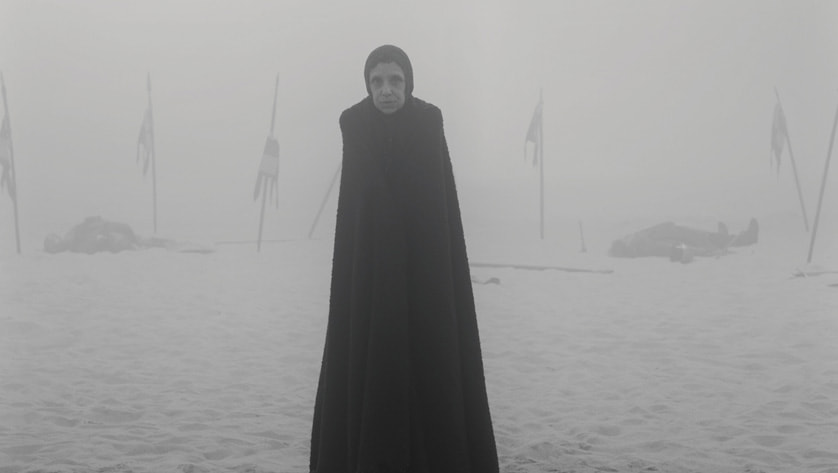
Joel Coen’s film adaptation of William Shakespeare’s 17th-century play retains the source material’s themes of the corruptive powers of greed, treachery, and unfaithfulness. It is a cautionary tale of the dangers that may come from seemingly promising whispers of glory – falsities that are revealed to be deceitful seductions of chaos and division.
Denzel Washington acts in the role of the titular Lord Macbeth, with Frances McDormand as Lady Macbeth in impassioned performances brimming with the emotions of these characters’ highest aims and darkest desires. How much of their honor and morality are they willing to sacrifice if it means attaining the greatest power in the land? Apparently, the answer to this question is “all of it.” There is no line they will not cross, no oath they will not break, and no back they will not stab if it means gaining more authority and dominance. This dogmatic seed was planted by the promise from the mystical trio of witches (played by the brilliant Kathryn Hunter) that Macbeth would be granted the title of King – despite the fact that King Duncan (Brendan Gleeson) is already on the throne. This sets in motion the ensuing vicious cycle of calculated bloodshed, perpetrated by Macbeth and his wife.
Christian audiences can look to this narrative as an admonishment of dishonesty and a warning against principles founded on arrogance and exceptionalism. Tenets rooted in such selfish ambitions go against every element of the teachings of Jesus Christ. We should listen carefully to the voices around us that guide our own lives. Are their words of a godly basis, filled with love, compassion, and empathy? Or are they depraved and self-centered, failing to respect the existences and experiences of others? This is something that should be delicately considered before we allow ourselves to move forward with certain decisions influenced by others. — Thomas Manning, Co-host of Meet Me at the Movies
Arts & Faith Lists:
2021 Arts & Faith Ecumenical Jury — #3